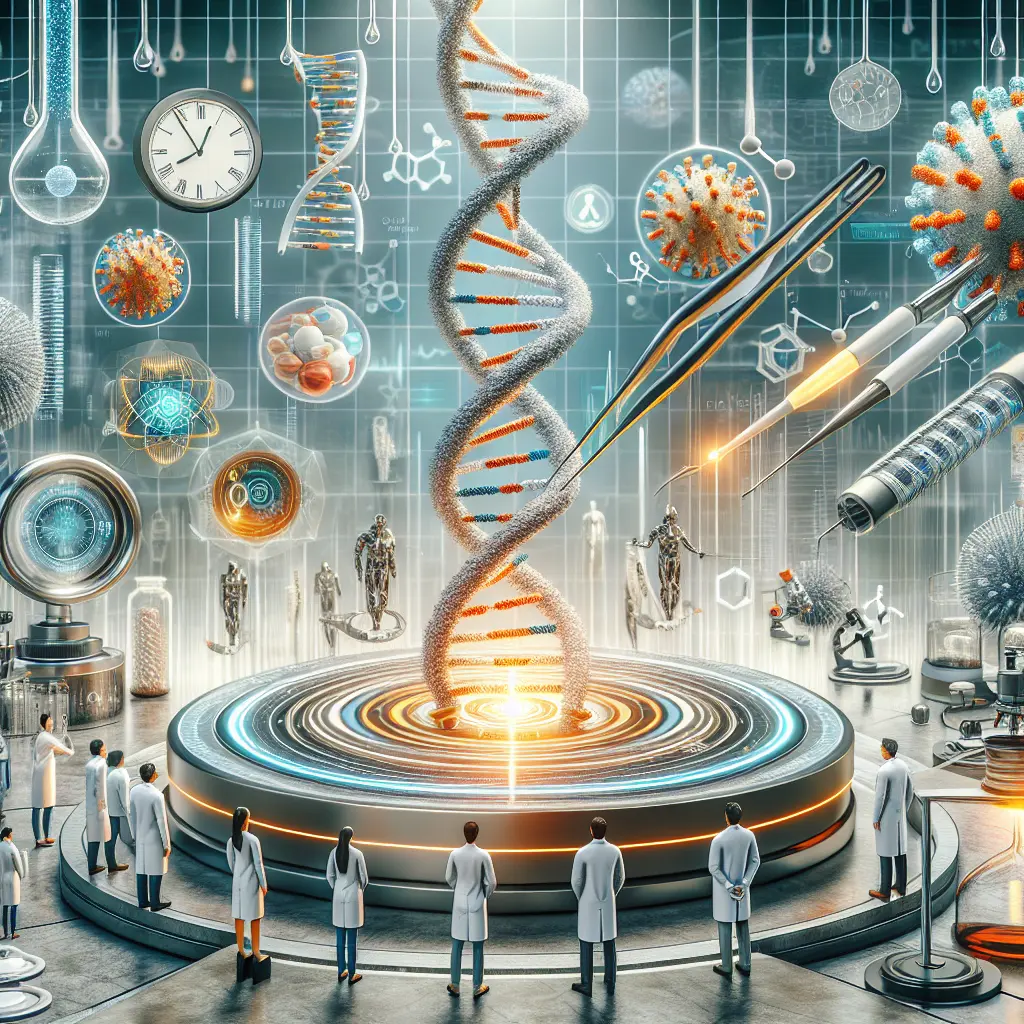
As we step into an era of unprecedented technological advancements in healthcare, the fusion of biotechnology and precision medicine is reshaping our approach to disease treatment and prevention. Precision medicine, particularly through innovations in gene editing technologies, is paving the way for more personalized, effective healthcare solutions. This shift is driven by a deepening understanding of the genetic foundations of diseases, facilitated by tools like CRISPR-Cas9, DNA sequencing, and next-generation sequencing.
The Rise of Personalized Cancer Medicine
The personalized cancer medicine market, which is projected to exceed $507.2 billion by 2030, underscores a significant shift towards patient-specific treatments in oncology (Source: Global Cancer Statistics Report). This growth is fueled by the integration of molecular diagnostics and bioinformatics in precision medicine, enabling the identification of unique genetic profiles and the tailoring of targeted therapies to individual patients.
Decitabine Drug Market and Gene Therapy Advancements
In the realm of gene therapy advancements, the Decitabine drug market serves as a poignant example. Decitabine, used primarily for treating myelodysplastic syndromes, operates at the genetic level to modify DNA function. The market for this drug is expected to witness robust growth from 2024 to 2031, driven by its increasing adoption in gene therapy protocols (Source: Pharma Market Research Report).
Ethical Considerations in Gene Editing
As we advance in genetic engineering and therapeutic gene editing, ethical considerations remain at the forefront. The power to alter DNA raises significant ethical and social questions about the extent to which this technology should be used. Issues such as consent, potential for misuse, and long-term impacts on genetic diversity are critical areas needing stringent regulatory frameworks.
AI's Role in Genomics Research
Artificial Intelligence (AI) is revolutionizing genomics by enhancing the capabilities of gene editing technologies. AI algorithms can predict the outcomes of gene editing procedures and identify potential off-target effects of CRISPR-Cas9, thus improving the safety and efficiency of these interventions. This integration of AI with genomics research is pivotal in advancing personalized medicine strategies (Source: Nature Reviews Genetics).
The Impact of Biotechnology on Healthcare
Biotechnology's role in healthcare extends beyond treatment to include the prevention of diseases. Tools like CRISPR-Cas9 allow for targeted genome editing, which can potentially correct genetic defects before they manifest as diseases. This proactive approach in therapeutic gene editing underscores biotechnology's integral role in advancing healthcare.
Next-Generation Sequencing: A Pillar of Precision Medicine
Next-generation sequencing (NGS) has been a game-changer in genetic engineering. By allowing for the rapid sequencing of DNA and RNA, NGS provides a comprehensive view of an individual’s genetic makeup, facilitating highly personalized medical interventions based on one's genetic predisposition to diseases (Source: Science Advances).
Bioinformatics: The Backbone of Precision Medicine
The field of bioinformatics is crucial in translating vast amounts of genetic data into actionable insights. This discipline plays a pivotal role in personalized medicine by employing sophisticated algorithms and computational methods to analyze and interpret biological data, thus enhancing the accuracy of disease diagnosis and treatment.
Challenges and Opportunities
Despite the promising advances in gene editing technologies and their applications in precision medicine, several challenges remain. Issues such as accessibility, affordability, and public acceptance are critical hurdles that need addressing. Moreover, as these technologies continue to evolve, so must our regulatory and ethical frameworks to ensure they benefit all sectors of society equitably.
Conclusion
In conclusion, the advances in precision medicine through gene editing technologies herald a new age in medical treatment and disease prevention. From the burgeoning market for personalized cancer medicine to the ethical considerations that accompany genetic engineering, these developments promise a future where medicine is tailored to each individual’s genetic profile. As we navigate these advancements, it is imperative that we remain vigilant about the ethical implications and strive to make these technologies accessible and beneficial for everyone.
Thank you for joining me on this exploration of how precision medicine is being transformed by gene editing technologies. As we look forward to more innovations, let us also commit to guiding their development with wisdom and foresight.
With hopeful regards,
Sarah Brighton
Note: For further reading on these topics or more detailed information on recent studies and market trends mentioned here, I recommend visiting respected publication sites within the fields of genetics and biotechnology.